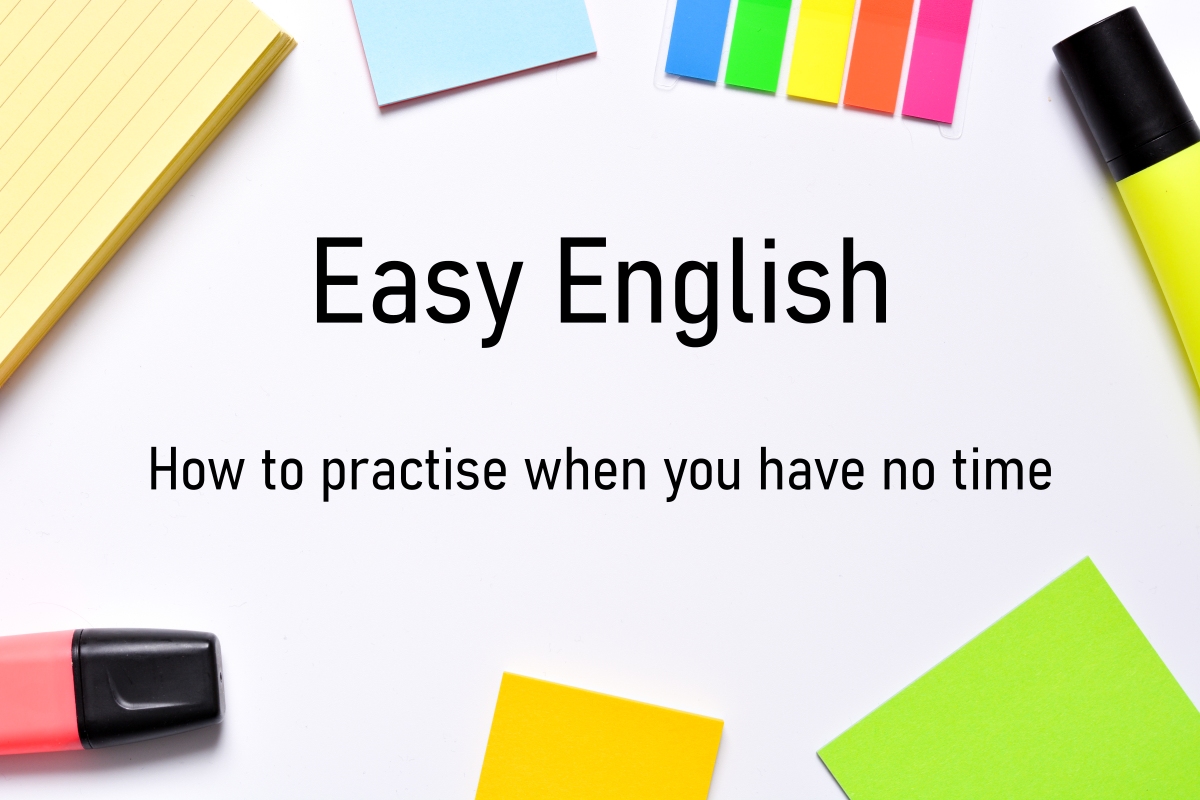One of the most common reasons people give up learning a language is because they do not have enough time. They have a busy job, a family to look after, friends to visit and they play sports too. When should they practise English?
It’s true that learning a language needs work and takes time, but there are lots of things we can do to practise that take no extra time from our day. Here are some tips for fitting language learning into your schedule.
Vocabulary
Learning new vocabulary doesn’t have to take a lot of time. Make sentences with new words when you are doing something else, like eating breakfast, sitting on the bus or cooking dinner. Repeat this every day for a week or until you know the words very well, then try new words. Apps are also a good way to quickly practise vocabulary for a few minutes each day.
In addition, write down a few words you want to learn on post-it notes and stick them somewhere easy to see, like a mirror. Every time you look at the mirror you will see the words you want to learn. It’s even better if you can make sentences with these words too.
Here are some more tips for learning vocabulary effectively.
Reading
You don’t need to do anything extra in your day to practise reading in English. Change your phone, laptop or social media account settings. This way, you will be reading English regularly with no extra work. It’s also a good way to learn some new vocabulary.
Lots of us like to read the news in the morning when we have breakfast or are on the bus or train. Instead of doing this in your own language, why not read a short article in English? It’s also a great way to keep up-to-date with news in different countries.
Listening
I am a big fan of podcasts when it comes to learning languages. There are podcasts for every level and interest. Some are made for people learning English, but more advanced students can also listen to general podcasts too. Choose a short podcast to start (5-10 minutes) and listen to it when you are on the bus/cooking dinner/cleaning your house.
Don’t worry if you don’t understand everything first time – you can play it through again. Remember we don’t need to understand every word to understand the main ideas in the podcast. This is a great way to practise listening to different accents and to get a feeling for the language.
Speaking
Speaking is probably the hardest skill to practise regularly if you do not live in an English-speaking country or need English in your job. If you have a friend or family member who speaks English, you could always speak to them in English, or choose one day of the week to be ‘English day’. It feels strange at first but it’s a great way to practise together.
If there is no one to speak to, you can practise on your own too. For example, every day when you come home from work you could talk for two minutes about what happened during your day. You can get used to speaking English, and there is no pressure from other people.
Writing
Write to-do lists, shopping lists and notes for yourself in English. We write these things anyway, so it’s not extra work. It may take a little longer the first time, but you will quickly learn the words and phrases you often use.
If you have a friend or a family member who speaks English, you could also message or email them in English for extra practice. This way, you can help and correct each other too.
These are my tips for learning a language when you don’t have much time. I’d love to know if you try any of them. Do you have any more ideas?


[…] vocabulary. You can practise when you are doing something else. Follow the link to read more about practising English you don’t have much […]
LikeLike